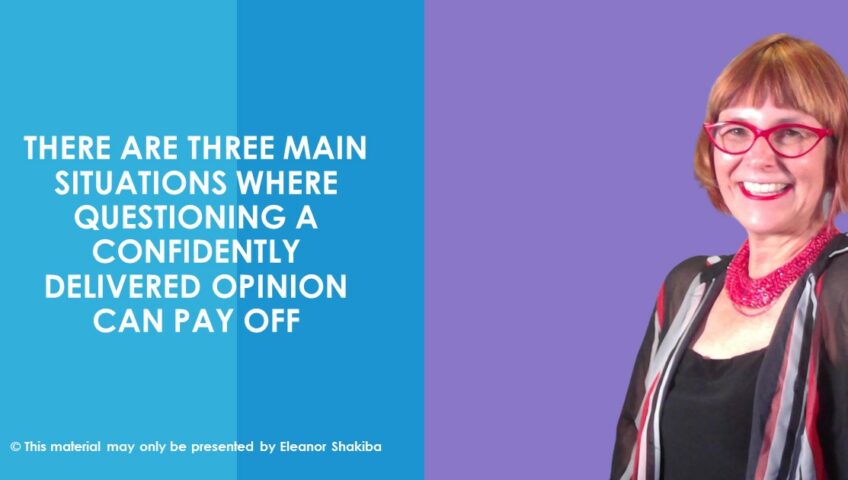Have you ever been given advice by someone who sounded confident, but turned out to be wrong? I certainly have. For example, I once asked my team whether it was possible to automatically add up the cells in Microsoft Word. “Definitely not,” they said. For the next twelve months, we wasted valuable time manually adding up long strings of data. Finally, I paused to reflect. After all, computers are designed to manipulate data. Surely, a simple addition in Word would be possible? Of course, a short Google search established that this was, indeed, the case.
Fortunately for me, seemingly trivial incidents like this have taught me to question even the most confidently delivered advice. I now make it a habit to ask, “How do you know that?” whenever I am seeking advice. What I’ve learned from this is there are three main situations where questioning a confidently delivered opinion can pay off.
- When mitigating risks
- If you’re encountering resistance to change or new ideas
- When seeking expert opinions or advice on an issue you have little knowledge of
In these situations, it pays to check the underlying assumptions behind a confident speaker’s opinions. I like to use NLP meta modelling techniques when doing this. Essentially, these techniques help you spot the ‘presuppositions’ (or assumptions) a statement is based on. You can then zero in on those presuppositions and check their implications for the decision you are making. Useful questions include:
- What is that advice based on?
- Can you talk me through the assumptions this advice is drawing on?
- When you say ….is obvious, what makes it obvious to you?
- Based on your experience, what are the key things I need to remember when putting this advice into action?
- What is your training and experience in this area?
- What assumptions are you making about my situation when you offer this opinion?
If you’d like to find out more how to use positive psychology in your training and development activities, download Eleanor Shakiba’s Positive Psychology Toolkit for HR and L&D Practitioners.
About the author: Eleanor Shakiba
Eleanor is a specialist in positive psychology. Her passion is teaching talented people to use social and emotional intelligence to excel in business. These skills centre around building positive mindsets, proactive communication habits and purposeful leadership behaviours. Eleanor’s qualifications include degrees and diplomas in Social Anthropology, Positive Psychology, Counselling, Coaching, Adult Education and Neuro Linguistic Programming. She is also the author of the Positive Psychology Toolkit for HR and L&D Practitioners. This is a free resource for trainers and facilitators.
